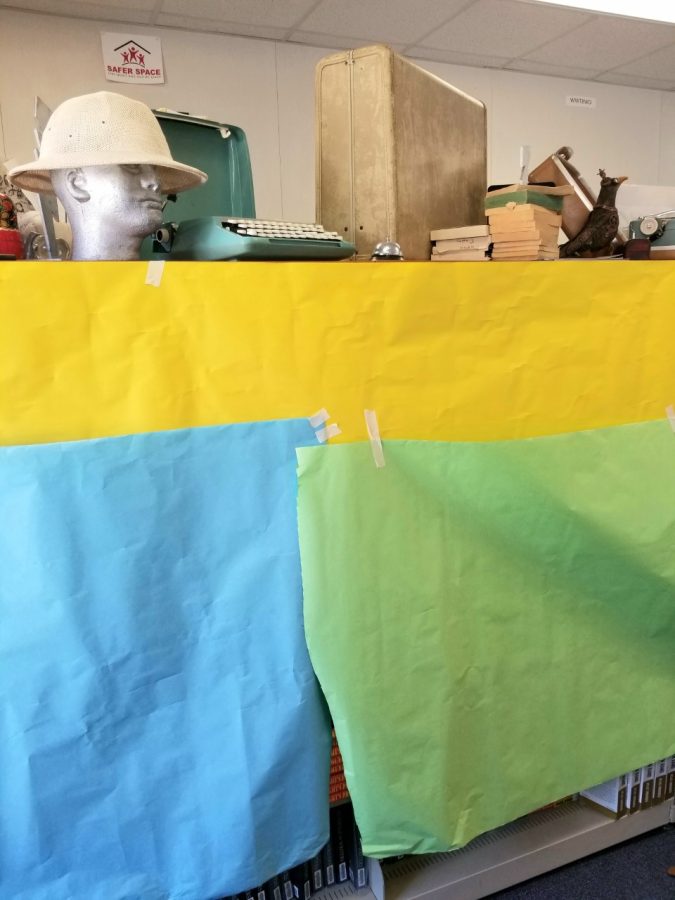The Effects of Book-Banning and HB 1467 on Teachers
Mr. Capley’s classroom library, temporarily covered by paper.
February 15, 2023
First, Governer Ron DeSantis banned books. Then he banned whole courses. And now? If an educator’s books aren’t up to standard, they could be committing a third-degree felony.
This is the work of HB 1467, a bill passed in July 2022 that began enforcement in January of this year. The bill requires educators in school and classroom libraries to “catalog” their books to ensure they’re up to standards. If a book is found to not exists within the catalog system, it will have to be examined by a trained media specialist. This specialist will then determine whether the book is kept or weeded out of the library entirely. It also allows parents to file complaints about the reading material their children are exposed to and, yes, even potential felony charges for educators who don’t comply, under the argument of a previous law that prohibits distribution of pornographic materials to minors.
Plenty of teachers have voiced their concerns and shown the effects of the ban of social media, from videos of empty shelves to pictures of classroom libraries cloaked in paper rolls. But you don’t need to go online to see the effects of the ban here on campus. Both Ms. Chelsea Swann and Mr. Brian Capley shared similar concerns. Although their personal collections of books are fine for the students they teach; they can’t be found in catalog systems and could be subject to the chopping block. This is especially concerning for Creative Writers, since there are no standardized creative writing textbooks in the state. “How am I going to show my students examples of what I believe is good writing? Who decides what good writing is?” shared Capley.
As for OCSA, teachers have until the end of the year to decide what to do with their classroom libraries. What choices will they make? Only time- and whatever new regulations are passed- will tell.


